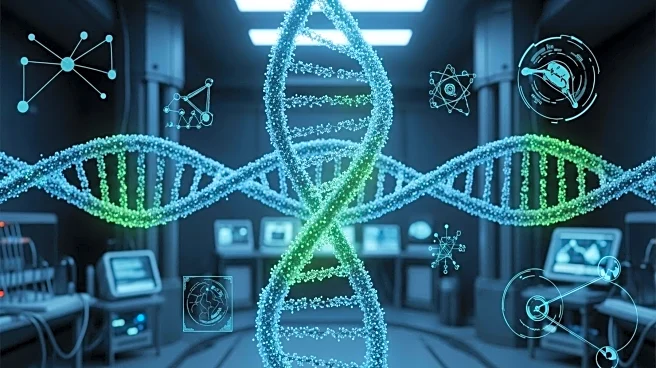What's Happening?
A controversial study led by Dr. Max Rempel suggests that aliens may have inserted genes into human DNA, potentially affecting millions of people. The study, which has not yet been peer-reviewed, analyzed DNA from individuals who claim to have been abducted by aliens, as well as from regular people. Rempel found large sequences of DNA in some families that did not correspond to parental DNA, suggesting possible alien intervention. The study raises the possibility of identifying humans with alien DNA, potentially classifying them as hybrids. Rempel advocates for using high-resolution sequencing to further investigate these claims.
Why It's Important?
If proven true, the study could have profound implications for our understanding of human genetics and the possibility of extraterrestrial life. It challenges conventional scientific views and could lead to new research into genetic anomalies and their origins. The claims also touch on broader societal issues, such as the stigmatization of individuals with neurodivergent traits, which the study speculates may be linked to alien DNA. The potential for humans to possess unusual abilities due to these genetic modifications could impact various fields, including neuroscience and psychology.
What's Next?
Further research is needed to validate the study's claims, requiring more precise datasets and advanced sequencing techniques. The scientific community may respond with skepticism, demanding rigorous peer review and replication of results. If the claims gain traction, they could spark debates on the ethical implications of alien hybridization and its impact on humanity. Researchers may explore collaborations to expand the study and investigate the genetic markers identified.
Beyond the Headlines
The study raises ethical questions about the manipulation of human DNA and the potential consequences of alien hybridization. It challenges the boundaries between science fiction and scientific inquiry, prompting discussions on the credibility of unconventional research. The implications for individuals identified as hybrids could lead to societal and cultural shifts, affecting perceptions of identity and belonging.








